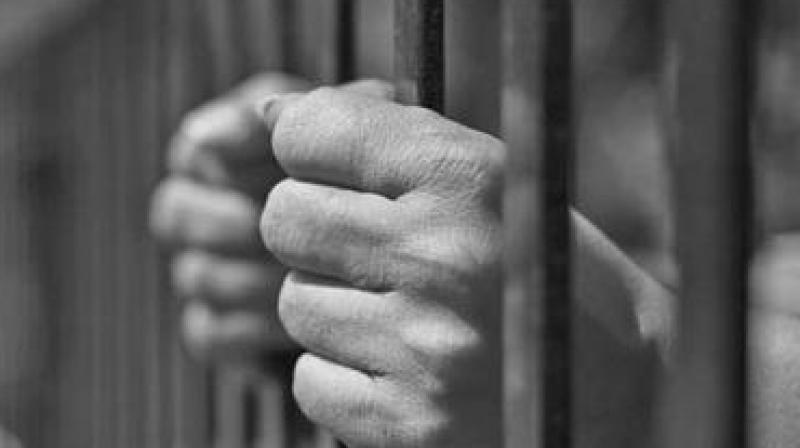Decision to set free three lifers wobbly

The Raj Bhavan said, “After being satisfied that the three life convicts would be absorbed by the society without any disturbance and based on the grounds that the Supreme Court had observed that the deaths had taken place in a state of mob frenzy and taking into account the fact that the three life convicts were in prison for 13 years, orders were issued approving their premature release under Article 161 of the Constitution.”
As is natural, the families of the three deceased students — Kokilavani, Gayathri and Hemalatha — of the Tamil Nadu Agricultural University, Coimbatore, have vociferously protested that State was playing partisan politics against the closure of their trauma and suffering by reopening them.
The three convicts were hauled up for setting fire to a bus in which the three students were travelling on Feb 2, 2000 in the wake of conviction of Ms Jayalalitha in the Pleasant Stay Hotel case.
Witness after witness — 20 of them — turned hostile before the Krishnagiri court and the Madras High Court had to intervene to transfer the trial to Salem. We also had inordinate delay in appointment of Special Public Prosecutor and ‘case files going missing’. Tongues were wagging all along as political skews were at play.
In a rather expeditious disposal, the Madras High Court took up the appeals and confirmed by orders of December 6, 2007, the trial court’s verdict to send the convicts to the gallows.
The conviction got escalated to the Supreme Court which saw no reason to differ from the two courts below, by its orders of 30 Aug, 2010. And in a rare occurrence in the annals of this jurisdiction, a three-judge bench of the Supreme Court commuted the death sentence to one of life by orders of March 11, 2016. The Supreme Court accepted their defence of ‘diminished responsibility’ and reasoned that the convicts had not even known their victims and their crime did not deserve the death penalty. It was ruled that in a case of ‘spontaneous mob frenzy there was no room for pre meditated intent to kill’ which was a mitigating factor.
In a rather stunning and quicksilver sequence of events and time line, a fax went from the Additional Director General of Police on Nov 19 at 11.30 am and the three convicts walked free at 12.25 pm. Surely, the snail’s pace of bureaucracy had given way to breakneck speed, which raised the eyebrows of the informed. The lightning speed in implementing the orders and immediate disappearance of the three men to nowhere could not be ignored as anything normal or ordinary.
The Governor of the State has the constitutional power under Article 161 to set the convicts free. The State Government had earlier recommended release, but the Governor had sent back the file for ‘reconsideration’. The Government reiterated its position and the Governor took the advice of the Advocate General of the State. The result was the Governor’s change of mind, heart and decision to set the convicts free.
It is a constitutional power the Governor exercises. He has the aid and advice of the Cabinet of the State Government. Yet, he has his zone of discretion within the constitutional framework .Such decisions should be beyond a speck of doubt or suspicion or political colour. The order refers to “mob frenzy’ theory as “diminishing” the criminality (a ground on which commutation had already been granted) and 13 years’ incarceration for a life convict, when the 14 year timeline was still to pass.
In this case, the discerning can glean a sure pattern. The convicts suffered the consequence of their ‘irrational exuberance on the conviction of their Puratchi Thalavi’. The trial before Krishnagiri Court was a farce. There was also glaring delay in appointment of SPP and files going missing -- surely not usual. Even when Jaya was alive, she had expressed her concern for the convicts’ future and their families. The ruling party had always been yearning for a pardon as they “faced the gallows out of love for their Amma”. Tallying all these numbers and sequencing the speed and alacrity shown in releasing the convicts, the Governor’s call seems wobbly.
There is undeniable politics imbued in the factual matrix, with the State Government already accused as B party of the Centre and the Governor a ‘tool’ of the Centre. The accusations cannot be dismissed off hand as rants of the opposition, when a constitutional power is under the scanner. Not a healthy precedent, for sure.
The decision of the Governor is justiciable. Not the decision per se, but the processes and procedures and surrounding circumstances. It would be sad if the constitutional authority’s order comes up for challenge, as seems inevitable. But then he and the State alone have to take the blame.
(Author is practising advocate in the Madras High Court)

